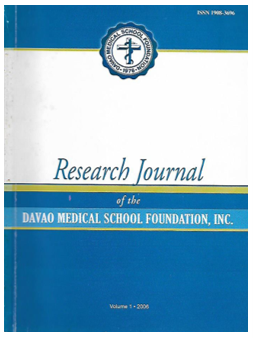AUTHOR
Geraldine Jainar-Arendain, RN, MCH
ABSTRACT
This is a descriptive study of the war-related experiences, psychological symptoms, and coping mechanisms employed by the children who were living in evacuation centers a year after their families had been displaced from their homes by the 2000 all out war declared by the Government of the Republic of the Philippines (GRP) against the Moro Islamic Liberation Front (MILF). At the time of the study, sporadic encounters were still occuring in the home communities of the evacuees. The primary data were drawn with the use of a structured interview schedule, administered by trained community-based data gatherers who could communicate the questions in the motehr tongue of the respondents. The interview schedule incorporated modifications of Macksoud’s Childhood War Trauma Questionnaire and the Reporting Questionnaire for Children (RQC) that is used by the World Health Organization (WHO). Findings showed the prevalence of war-related experiences that have potential adverse psychological impact on children, as established by several studies done previously on children in war situations. These experiences include: bereavement; witnessing violent events; forced separation from family, friends, and neighbors; war and combat exposure; and extreme poverty and deprivation. RQC scores indicated that the children were relatively well-adjusted, although more than half scored in the range of false possibles, indicating that they may still be at risk of developing fullblown mental or psychiatric disorders should their life conditions remain stressful and uncertain. The children manifested psychological symptoms such as nervousenss, troubled socialization, frequent headaches, and sleep disturbances. The importance of social support agencies was magnified in the children’s perception of the coping alternatives available to alleviate the stress and hardship that they were experiencing. Other coping mechanisms this study turned up include relgious affiliation, family-centered (bonding and maintenance) activities, and conscious attempts to improve social relations among peers and fellow evacuees. This study recommended that concerned agencies shousl address the basic needs of the evacuees, especially for food and medicine. Rehabiliation efforts should be directed at enhancing livelihood opportunities for the family and providing safe water sources for the iinternally displaced. The peace process must also be nurtured in order to bring a lasting peace.


